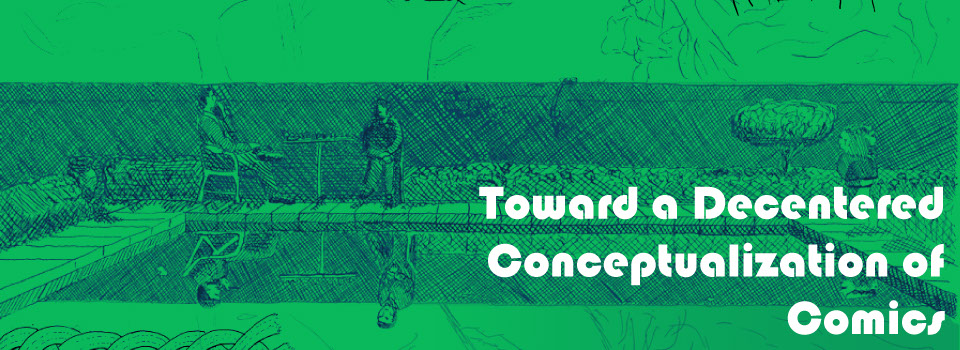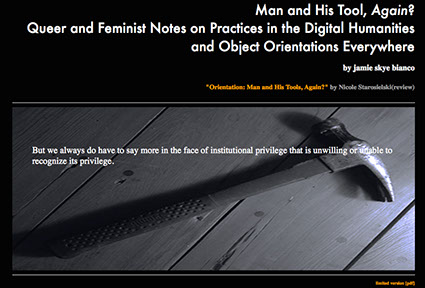
x
Contents
Home
Home
Home

Getting Past Post-structuralism

differentiating
If the mention of post-structuralism gives you pause, you are not alone. Two decades ago scholars began ringing theory’s death knell with a not entirely concealed mirth—perhaps because it had been so alienating, so exclusive. The same attributes that made theory so attractive—complex ideas, experimental style, black clothing—also made it feel like an in-joke that some of us were always outside of. Maybe theory’s death is not such a bad thing, then. Academics do not need more cliques, thank you. We already have more than enough.
But we still do theory. We all do. The cool kids left their table and dispersed into the general population, bringing their hip new theories with them. And so theory died like Slothrop: dispersed into the hearts of the preterit left outside. But with the table open, what new clique will set up house?
In 2011 William Pannapacker worried the digital humanities would do just that:
The digital humanities have some internal tensions, such as the occasional divide between builders and theorizers, and coders and non-coders. But the field, as a whole, seems to be developing an in-group, out-group dynamic that threatens to replicate the culture of Big Theory back in the 80s and 90s, which was alienating to so many people. It’s perceptible in the universe of Twitter: We read it, but we do not participate. It’s the cool-kids’ table.
Disciplines have to define themselves, and definition is always a process of drawing a line: who is in and who is out. Digital humanities is certainly the hip new thing (despite the fact that it is hardly new). As a rhetoric scholar interested in digital technology, I am excited by DH’s newfound fame. However, I also often find myself straddling that line ambivalently. Do I have to do TEI encoding? Is the thing you are currently reading part of the digital humanities? It is digital and created by someone in the humanities, but it lacks graphs, and I’ve heard those are the trademark. The digital humanities could benefit from a definitional hesitation similar to that I have described in comics.
Regardless of how the field defines itself going forward, it cannot exile theory. jamie skye bianco argues compellingly that tools are not enough. She quotes Audre Lorde’s famous, “the master’s tools will never dismantle the master’s house” (“This Digital Humanities,” 99). Forgetting about politics, gender, or race does not make them go away, and focusing on tools can obscure material conditions. Tools, after all, are transparent when they work. It is only in breaking down that we notice them. We will investigate this more closely in another section. For now, it is enough to boil down bianco’s argument: DH scholars need to know how to critique just as much as they need to know how to code (109).
On her blog, bianco later reviewed Debates in the Digital Humanities, the collection in which her previous essay appears. The stunning multimodal review, “Man and His Tool, Again?” interdigitates her own argument with quotes from two edited collections over a simple image of a hammer. The quotes and the argument reflect a statistical analysis of the collections’ uses of terms like tool (700) and race (73, 47 of which were in just one essay). Between the statistical level and the page I see in front of me there was also a great deal of coding and design. All of this adds up to a series of implicit and explicit claims that form a single argument: DH still needs critique. Without theory DH will just perpetuate the hegemonic practices that permeate our world:
Because it isn’t that we don’t find race, sexuality, gender, and all manner of axes of stratification in DH, / but that we find ourselves back in a place / where these axes of stratification / don’t have to matter / because they are not material / nor audible / nor visible / nor a mode of constraint and capture / to those running the game.
Yes. And I also wonder: if we jettison the “man and his tool” business, what might we hack, make and build?
And if critique is vital, then maybe we can still read theory. Maybe the formerly cool theorists have worthwhile critiques of DH and of comics.

"Never believe that a smooth space will suffice to save us." (Deleuze and Guattari, A Thousand Plateaus 500)
Image from Bianco.


